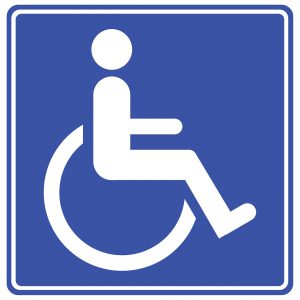Approximately 20% of Americans are living with some form of disability, and that can mean being unable to work, and dealing with a lot of financial strain. But if you can no longer work due to a disability, and you have disability insurance benefits through your job, you might get some financial help, depending on your policy’s definition of disability. And if you can return to work part-time, you can still receive partial disability, or residual disability benefits – this is great, but is it enough? And if your job doesn’t offer insurance with residual disability benefits, should you buy it on your own, or should you consider purchasing a life insurance policy with disability riders?
Definition of Disability

When it comes to receiving disability insurance benefits, it all depends on your insurance policy’s definition of disability: the definition of disability can differ between different insurance companies. Their different classifications of who can receive what benefits for how long include:
- Total disability– You are completely disabled and you can’t work, and can receive your insurance benefits because you have lost your income source.
- Partial disability– You can still work, but perhaps only part-time or on reduced duties, so you have lost part of your income. In most cases, you will still be able to receive benefits.
- Extended partial disability– When your partial disability benefits run out, you might be eligible for extended partial disability, which is essentially the same as partial disability, but lasts for as long as you need with reduced benefit amounts.
- Presumptive total disability– This is a form of total disability, meaning you will never recover from your disability due to loss of limbs, deafness, etc. There is no elimination period.
What Are Residual Disability Benefits & How Do They Work?
As mentioned above, when you are facing partial disability, meaning you can perform some of your duties at work part-time, you will receive residual disability benefits. Typically, you will get full disability benefits that last for 6 months and will then be reduced to a percentage of your monthly income, which will be based on how much income you have lost. Depending on your insurance company, though, a life insurance policy with a residual disability benefit rider could cover more.
Life Insurance Disability Benefits
So the question is: would the residual disability benefits on a disability insurance policy be enough for you or should you invest in a life insurance policy and add disability riders? Life insurance can be very affordable, and will be active for the rest of your life, not only while you are working, and can provide you with help if you become disabled. It will also leave your family with benefits in the event of your passing.
There are multiple long-term disability insurance riders available to add on to your life insurance policy, and many of them are free! In fact, this type of rider usually comes standard on a policy or can be added at no extra cost. Some different riders to consider include:
- Waiver of premium– If you become totally disabled, and can no longer work or pay for your life insurance, this rider will cover your premiums until you’re no longer disabled, or until you reach a certain age, typically between 65 and 70.
- Disability income rider- This type of rider provides monthly income payments if you are permanently disabled. Payouts are typically a percentage of the policy’s total coverage amount.
- Long-term care rider– The money from this rider can help with living expenses if you have a chronic illness and are unable to complete daily tasks on your own.
- Accelerated death benefit rider– You can get part or all of your policy’s death benefit while you’re still alive if you have a terminal illness. There are no restrictions on how the money can be used, which is great because you can use it to pay for medical care and treatments.
If you want extra protection, you can always have both disability and life insurance if you can afford it. If you cannot, though, consider looking more into life insurance and speaking with a licensed agent who can help identify which life insurance policy will suit you best, as well as which rider would be best in case of disability. Each company offers different rates and policies, which is why it is important to compare all of them.
Want More Information?
Before purchasing a life insurance policy, you should consider any additional riders you want to add on: riders are a great way to add coverage for unforeseen circumstances. If you need help finding a policy, or with reviewing your current policy, it’s in your best interest to speak to a local agent, who will help you compare plans and see which is the right fit for you. Consider also using online tools to see what is available. To get you started, we have provided the top insurance companies that offer life insurance policies below; each can give you hassle-free assistance and the most competitive rates in the nation. Always check multiple sites to make sure you have bargaining power and know the advantages of each company. Make sure a hard time isn’t made harder by a financial burden, check life insurance rates today.


